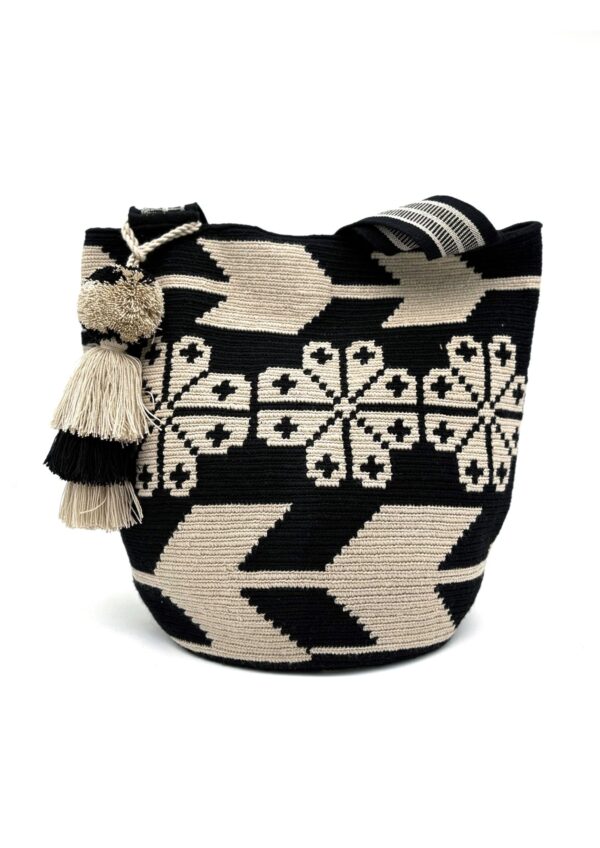They are not frozen in time. They are not poor. They are not gone.
The Kogui are still here — walking gently, living wisely, and carrying ancient strength through a world that barely sees them.
If someone from Vogue or National Geographic asked me,
“What’s one thing the world doesn’t understand about the Kogui?”
I wouldn’t talk about their weaving.
I wouldn’t talk about sustainability.
I’d talk about their hearts.
About their strength.
Their quiet dignity.
The way they live in rhythm with nature — not to impress anyone, but because that’s just who they are.
The Kogui carry thousands of years of ancestral wisdom.
And they’re still here — still smiling — even as the world keeps changing around them.
1. A Moment That Changed Me
I remember sitting at the wooden table at the school in Tayku.
It was lunchtime. The children were calm, focused, and full of quiet energy.
Each one was given a single cracker. That was their lunch.
No one complained. No one asked for more.
They just sat and ate.
Then I saw one of the older kids break off part of their cracker and pass it to a smaller child beside them.
No words. No fuss. Just care. Just instinct.
That moment hit me hard.
Because that’s the kind of thing you don’t forget.
That’s the kind of strength you don’t see every day.
They didn’t have enough.
But they still gave.
And they smiled while doing it.
2. What They Carry
People often mistake the Colombian Indigenous culture of the Kogui for poverty — but they’re not seeing the whole truth.
This community carries more than material wealth ever could.
They carry balance. They carry time. They carry memory.
They don’t chase trends. They don’t live for excess.
They don’t buy to feel full — they live to stay connected.
Mothers like Francisca, weaving before sunrise while her child rests at her feet — making each handmade mochila bag with patience and purpose.
Children who learn the rhythm of the forest before ever seeing a screen.
Elders like Mamo Juan, who still guide the community with sacred knowledge passed down for generations.
They are not poor.
But the world around them has changed — and it’s made life harder.
Still, they endure. Still, they give. Still, they smile.
3. It’s Not Easy — But They Don’t Complain
The rains don’t come like they used to.
The planting rhythms are off. The forest is thinning.
Sometimes there’s not enough food.
And still — they carry on.
They don’t ask for handouts.
But they welcome help when it comes from a place of respect and relationship.
When we bring food donations to Tayku, it’s not charity.
It’s solidarity.
It’s knowing that real community support means showing up — especially when it’s hard.
The Kogui would do the same for us.
4. What They’ve Taught Me
I thought I came here to help.
But the Kogui have taught me more than I ever imagined.
They’ve shown me what it looks like to live close to the Earth.
To value silence.
To stay rooted in ancestral tradition, even when the world pulls you in every direction.
Their children reminded me what joy looks like without needing anything new.
Their mothers showed me what patience feels like.
Their elders taught me how to listen again — not just to people, but to land.
This is what Indigenous artisans carry that no one sees:
Not just skill — but spirit.
5. Why We Walk Beside Them
At Woven Wildly, we don’t “work with” the Kogui.
We walk beside them.
They’ve welcomed us into their homes, their school, their rhythm of life.
And we honor that trust by sharing their truth — not just their product.
Every mochila bag purchased through Woven Wildly supports a woman’s work, a child’s education, and a living Indigenous economy that sustains culture, not just commerce.
This isn’t about ethical fashion.
This is about cultural survival, intergenerational memory, and love for a way of life that still exists — and still matters.
6. If You’ve Never Met the Kogui…
Know this:
They are still here.
Still weaving.
Still walking with the mountain.
Still holding onto something sacred — even while the world forgets what sacred means.
If you think they have less — look again.
They are not just surviving.
They are preserving Indigenous heritage, feeding children with whatever they have, and carrying beauty the modern world has no name for.
They’re still giving.
Still smiling.
Still sacred.
And they are still here.
We share this story as Woven Wildly — a living collaboration with Indigenous communities of the Sierra Nevada de Santa Marta. We don’t just sell mochilas. We carry culture.
Thank you for reading, for caring, and for helping preserve what matters.

This is what it’s really about — not just what we carry, but who we carry it for.
Every mochila sold helps keep these communities strong, self-sustaining, and seen.




